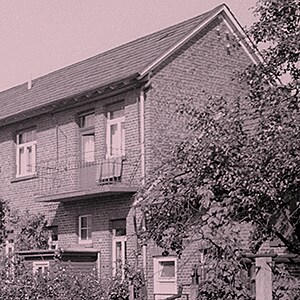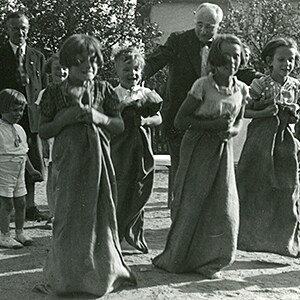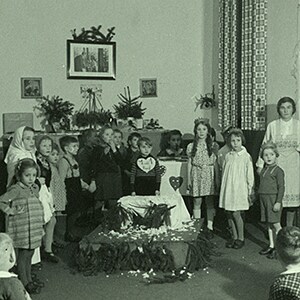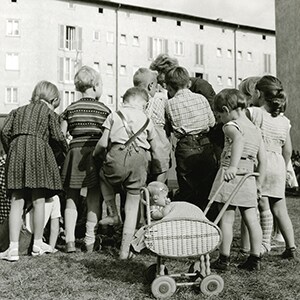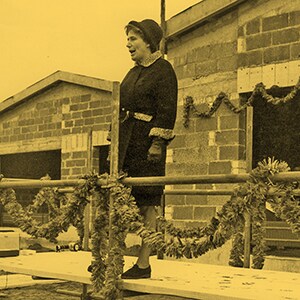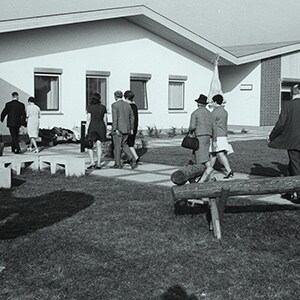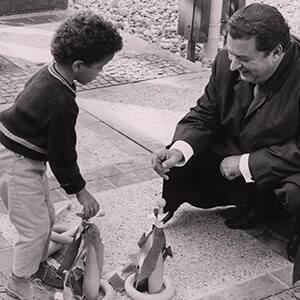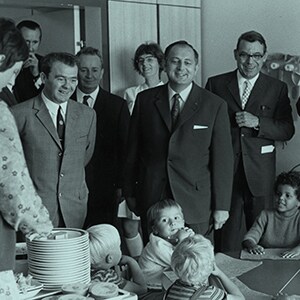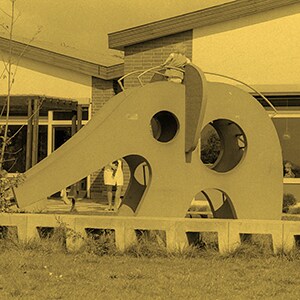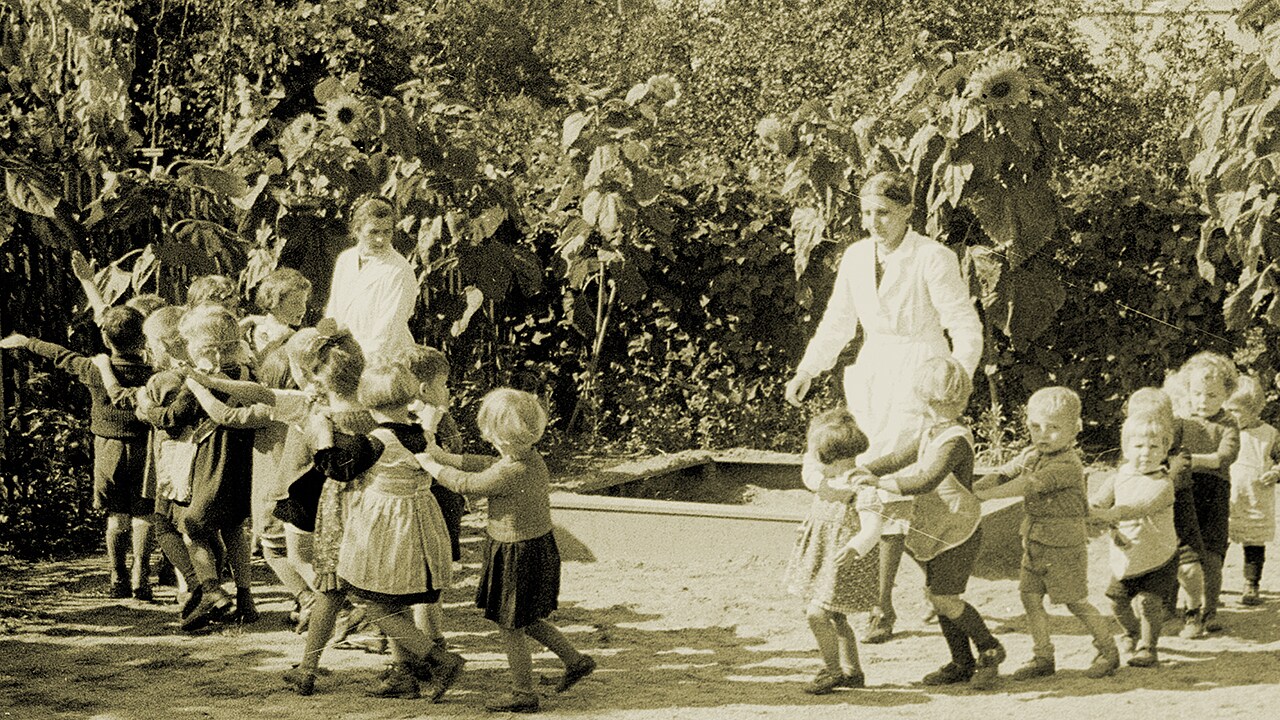
»The issue of women working now presents itself in a totally different light than just a few years ago...«
Employee newspaper of E. Merck, Darmstadt, Germany, issue 1, 1940
In January 1940, the »Kindergarten E. Merck, Darmstadt« opens its doors north of the site premises. World War II had started around four months earlier. Women are increasingly doing the jobs of the drafted men.
The center has capacity for 25 children from the ages of six weeks to six years. They are cared for by qualified personnel. A trained infant nurse is supported by a nursery school teacher and assistants. Two female supervisors have overall responsibility. The team is advised by a »works administrator for women’s affairs«, a function which is also political in nature. The parents are charged 25 or 40 Reich cents per day. This is roughly equivalent to the price of a midday meal in the company cafeteria.
After World War II ends, interest dies out, and the nursery school closes. In the post-war period, some efforts are made to reopen it. As the men return to their jobs from war and captivity, however, there are emphatic calls to end »dual-income families«.
The late 1960s are a period of nearly full employment. More workers are desperately needed. Between 1955 and 1968, the German federal government enters into bilateral labor recruitment agreements with several countries. And women are needed in the labor market once again. The need for and acceptance of working mothers thus grows. For married women, until 1977 German law dictates that their employment must be compatible with marital and family life. On the occasion of the company’s 300th anniversary, a decision is made to re-establish a company day care center as a gift from the family, which has fully financed the daycare center to this very day. In 1969, a crèche, nursery school and after-school care program are opened in four bungalows on Maulbeerallee.
A youth educator, an infant nurse, a pediatric nurse, child minders and childcare specialists, a school teacher, and a cook attend to 80 children. A representative of the family becomes the daycare center’s sponsor: Barbara Groos, a member of the Supervisory Board of E. Merck AG, Darmstadt, Germany from 1966 to 1969 and chair person of the Management Board of the »Kindertagesstättenverein« from 1967 to 1992. Only five years later, the daycare center is bursting at the seams.
In 1991, the German Federal Minister for Family Affairs praises the company initiative in support of equal opportunity: »The daycare center can serve as a model for others!« Further milestones include the private childcare placement service launched in 1997, the introduction of English lessons in 2003, and the groundbreaking ceremony for a major capacity expansion of the daycare center in 2019. It is a win-win solution: Parents can work, and the company can recruit or retain the employees who are becoming scarce in the labor market.
From the beginning, festivals are among the highlights of the daycare center. In 1943, Karl Merck (pictured right) prefers tostay on the sidelines during the sack races. In 1942, the employee newspaper reports: »Santa Claus did not have an entirely easy time of it in the third winter of the war, but he made it!« Many of the small children attending the daycare center had already lost a parent at that point.
In 1957, Karl Merck finances a new daycare center and gives it to the city of Darmstadt. It is the culmination of a housing construction program implemented together with HEAG. The year 1968 marks the 300th anniversary of the company in Darmstadt, Germany – an occasion for the company to construct its own daycare center. Barbara Groos speaks at the topping-out ceremony. The new building is inaugurated in September 1969.
For the children, the inauguration ceremony is an opportunity to meet members of the company management for the first time, here Peter Merck. In 1970, a VIP visits the daycare center – the Social Affairs Minister of the German federal state of Hesse. The first daycare center also features an elephant.

